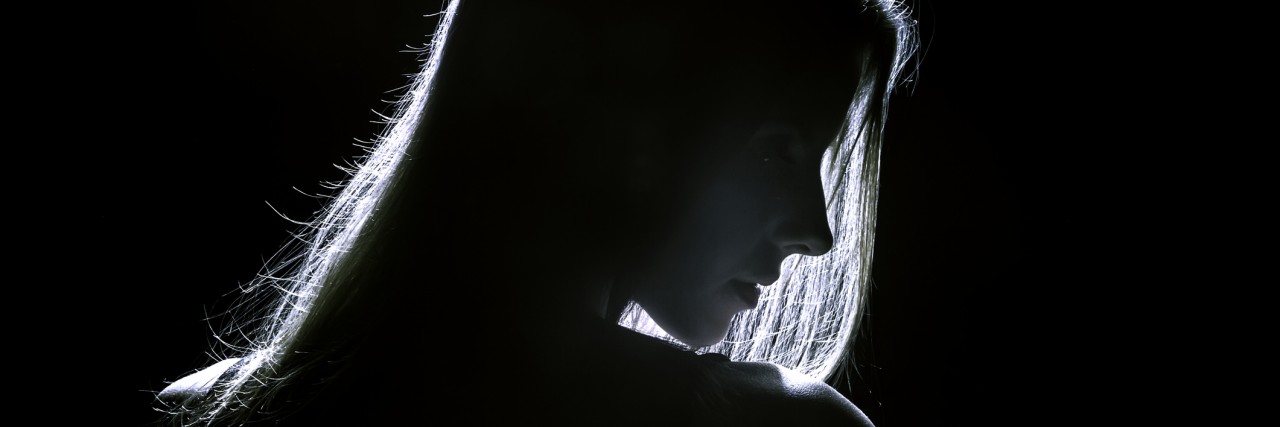I have always been a bit of an overachiever. I walked early. Spoke early. I began reading just before my fourth birthday and I tested into the “gifted program” — an accelerated educational “track” for those with above-average comprehension skills and/or IQs scores — shortly after entering elementary school.
I have also always been a bit of a perfectionist, which is to say I get bent out of shape when I make a mistake. I cannot stand the idea of slipping — or screwing — up and I cannot cope with failure. At all.
When I was in the first grade, I cried when I received a B+ instead of an A- on my spelling exam. At the time, my teacher was alarmed. She called my mother in for a conference. She told her my extreme self-loathing and self-condemnation was a cause for concern. She told my mother I was too young to be so damn serious. I was too young to be so damn hard on myself and she then suggested my mother get me help.
“Kim may need help.” But otherwise, she said, I was a great student. I was an active, happy and involved student and I stayed “picture perfect” for many years.
Many, many years.
Unfortunately, my grades only told half of the story. My college plans and “future” plans only told half of the story and behind closed doors I was harming myself. I was cutting myself. I tried to kill myself.
Behind closed doors, I was making plans for a second attempt because I couldn’t take it anymore. I couldn’t take the emptiness, hopelessness and pain anymore. I simply couldn’t handle life anymore because I was struggling with undiagnosed depression. I was wrestling with a fractured mind and a broken heart and without a diagnosis, I felt crazy. Life was crazy and the idea of living another day was daunting.
My life felt hopeless.
No one thought I had a problem. Not my family, friends, teachers or school counselor because I was acting “normally.” I was functioning “normally” and I wasn’t only meeting expectations, I was exceeding them. I wasn’t just a straight-A student, I was enrolled in nine clubs. I left for school at least an hour before the day began and stayed there late into the night. As long as the building’s doors were open, I was there. I worked harder and studied longer than ever before. But the truth was I was desperately trying to avoid myself and my mind.
I was desperately trying to avoid the stillness and the silence, because when life stopped, the thoughts started. The “shit” started. When I wasn’t surrounded by chaos, I was swallowed by sadness. I was consumed by sorrow and I felt my life was hopeless.
I felt hopeless.
You’re stupid. You’re pathetic. You’re hopeless. No one loves you. No cares about you and no one ever will. So why bother? Why keep fighting a battle you know you cannot win? Just give up. Just give in.
Maybe this was my fault. My perfectionist nature had taught me to downplay my pain and symptoms. I had never let anyone hear me scream or see me cry. I never told anyone I felt empty and worthless and that I wanted to die. I never told anyone I dreamed about dying. And I never told anyone I had a plan and a suicide note in my back pocket.
For an entire year, I had everything I needed to end my life. But my success and societal perception kept me from acting. I thought suicidal teens were supposed to be reckless, withdrawn loners. Suicidal teens shouldn’t be able to keep up their grades and they certainly shouldn’t be active members of the drama club and choir. Suicidal teens shouldn’t be working to win scholarships or opting to sing solos on stage.
But unfortunately, stereotypes aren’t foolproof. Mental illnesses don’t adhere to a one-size-fits-all list of symptoms and depression is unpredictable and varied. Suicidal ideation is unpredictable and varied and the face of suicide is both foreign and familiar.
It affects 4.0 students and senior citizens. Moms, “blue collar” workers, businessmen, doctors and CEOs.
So I ask today you get to know my face. Consider my story. Because while I was the student who had it all together — while I am a mom who likes to think she has it all together — in my case, “high-functioning” didn’t mean healthy.
For more mental health stories, visit Sunshine Spoils Milk or follow Kimberly Zapata on Facebook.
A version of this post originally appeared on Sunshine Spoils Milk.
If you or someone you know needs help, visit our suicide prevention resources page.
If you need support right now, call the National Suicide Prevention Lifeline at 1-800-273-8255 or text “START” to 741-741.
We want to hear your story. Become a Mighty contributor here.
Thinkstock photo via lekcej.

